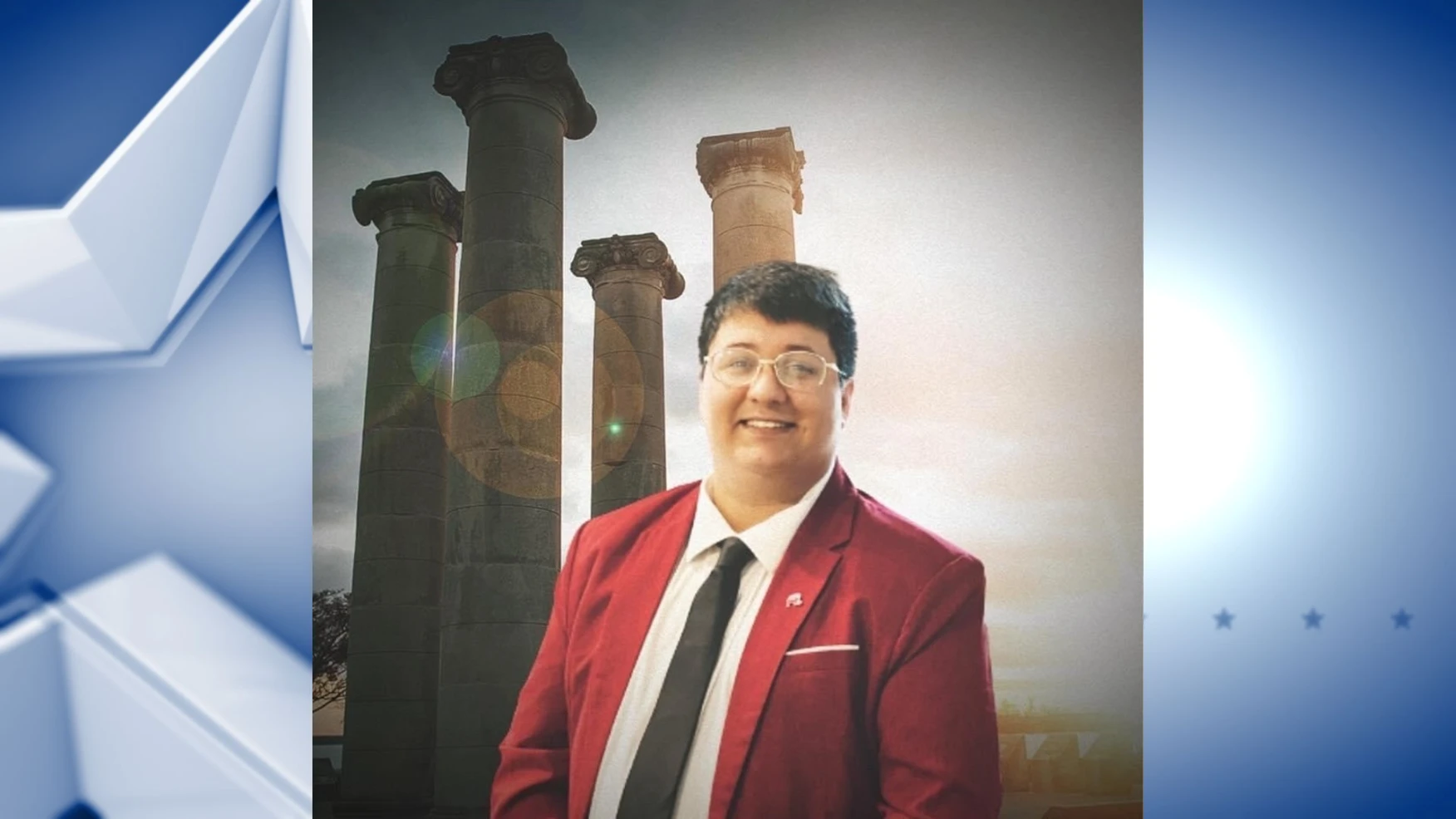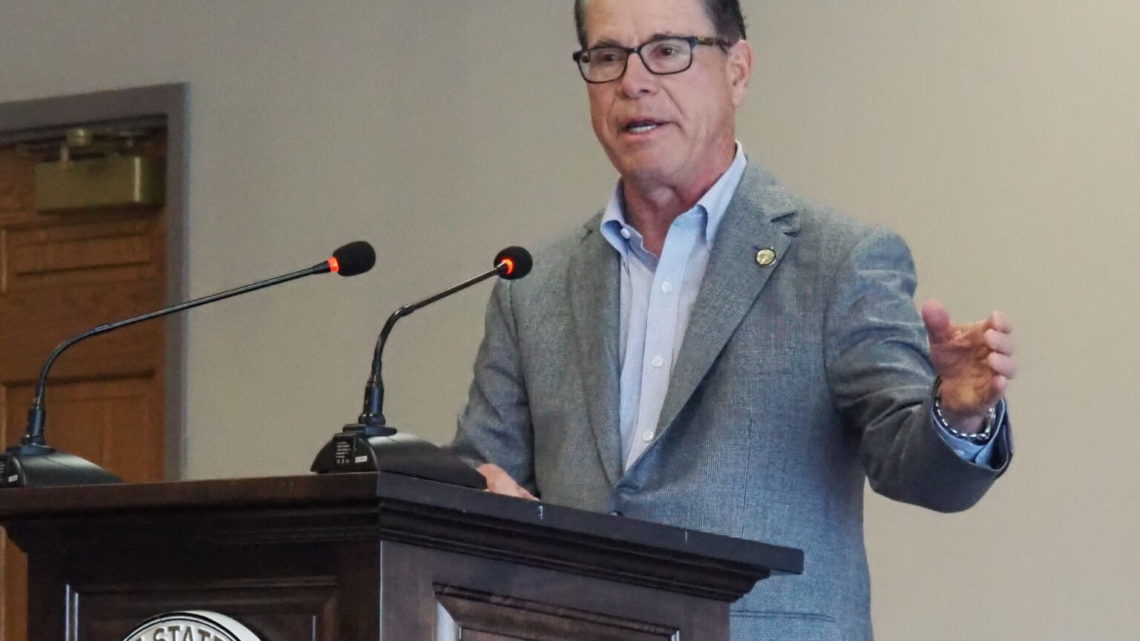by Leslie Bonilla Muñiz, Indiana Capital Chronicle
April 30, 2025
Indiana cabinet members, lawmakers, lobbyists and more gathered Wednesday to celebrate Gov. Mike Braun’s first 100 days in office — but the man of the hour had tough words for his second-in-command, critics of his marquee legislative accomplishments and the health care industry.
Lt. Gov. Micah Beckwith enraged civil rights activists and historians alike last Thursday when he dubbed the U.S. Constitution’s Three-Fifths Compromise “a great move” toward ending slavery.Braun didn’t publicly weigh in for a nearly a week.
“I definitely wouldn’t have used that characterization, and I don’t like it,” he told reporters Wednesday.
“I’m a believer that you better start thinking about what you’re saying before it comes out,” he continued. “… And I think that you don’t want to make headlines the wrong way, because it takes away from the substance of what you’re trying to do.”
Braun also defended the local property and income tax plan that lawmakers pushed past the finish line this month amid outcry from hard-hit units of local government and dissatisfied homeowners.
“By far the biggest thing I heard about: we went from one version to a different version, and then the meat grinder of legislation took over,” he told attendees. “And look at the product that we turned out. … You’re pissing off people on each end of the spectrum and most in between say that it was a solid package.”
In comments to reporters, Braun envisioned further cuts to homestead property tax bills, done gradually “to where other sources of income can be used.” But he warned school districts and local governments that he wouldn’t allow their revenues to grow faster than the economy.
Former President Joe Biden got a knock as Braun said a grim revenue forecast forced lawmakers to cut $2 billion in spending out of the state’s next two-year, now-$44 billion budget in the space of a week.
“When it comes to what we really cut, nothing got hammered, and the most important stuff stayed intact,” he declared.
Most state agencies, along with public colleges and universities, were dealt 5% funding cuts. Lawmakers also squeezed eligibility requirements for the state’s pre-kindergarten program and subsidized child care.
But a two-year-old program to supplement local public health departments took a 60% cut, with funding falling from $100 million each year to $40 million. Legislative leaders argued that nearly half the funds disbursed last year hadn’t yet been spent.
“Don’t ever mistake that you got to have more money to do things better with. That’s called anti-productivity,” Braun replied, when asked about the public health funding cut. “When you come up with better ideas, you may need more money to invest, and there’s nothing wrong with that, but in most cases, when it comes to government, you’ve got plenty of money. You’ve just got to learn how to spend it better.”
But he didn’t rule out funding boosts in the future.
“Don’t mistake the short-run — where you get whipsawed — with what you want to do in the mid-term and the long-term,” Braun said. “So that means we may be pouring more resources into it, if we can get a good (return on investment).”
He had big hopes for the interim and legislative sessions to come, repeatedly noting how taking office days after the session’s start hampered his efforts to shape proposals. His first 100 days overlapped entirely with the breakneck budget-writing session, ending just over a day before both chambers of the Indiana General Assembly adjourned sine die.
Braun reiterated his desire to tackle high health care costs as his top priority now that session is over. In both his speech and comments to reporters, he asked players in the health care industry for solutions while threatening punishment for stasis.
“That and more will be brought to bear if, in fact, they’re not lowering their prices and giving us better outcomes,” Braun said.











